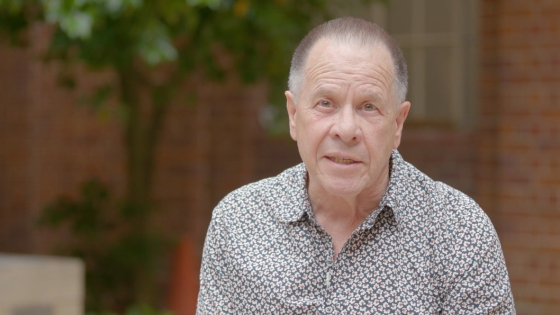“What would schooling look like if it was actioned around our community actually having a say about what their aspirations are and schools understanding those aspirations?”
This is one of the fundamental questions the CNS project seeks to answer.
Detailing the background and aims of the project, A/Prof Lowe (pictured below), a proud Gubbi Gubbi man, described it as the sum total of the collective thoughts of many people.
“It is a project that comes out of the heart and soul of teachers and families and communities right across this state,” he said.
“It's not about schools, or individual schools and teachers in schools. It's about schooling as a practice, how schooling has been constructed over a century to do the work that it does.
“This is our attempt to set the scales in favour of schools and in favour of teachers to actually shift the dial.”
Underpinning the work of the CNS project is a large body of research work, led by A/Prof Lowe and Professor Cathie Burgess, at The University of Sydney. That research – the Aboriginal Voices Project – included a review of more than 13,500 studies in search of evidence of a solution to improving the educational outcomes of Aboriginal and Torres Strait students.
“At the end of that study, we could not find a magic bullet,” A/Prof Lowe explained. “We did see many examples of good practice, but there was not one school in this country that had been reported through the research to have shown sustained success – that is beyond the life of a principal.”
Effective community engagement
The CNS project is structured to help schools and communities to achieve sustainable whole-of-school change, with an emphasis on effective community engagement and supporting teachers to feel more confident to incorporate Indigenous knowledges and cultures in the classroom.
“Our commitment is to work with the school for a three-year period, including 15 to 18 days of professional learning a year. Another key element is the work of Cultural Mentors in schools to engage staff in this teaching and learning work.” A/Prof Lowe added.
Around 200 teachers in eight schools in urban and rural and remote settings have already participated in the CNS program. A team of ten researchers – with a combined teaching experience of more than 100 years – support schools in the project, which also focusses on strengthening leadership skills and the development of micro treaties with local communities.

